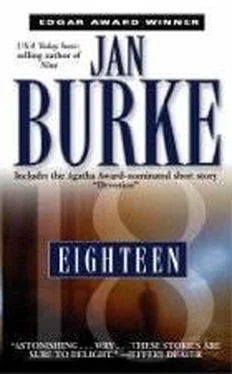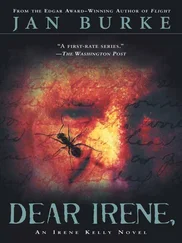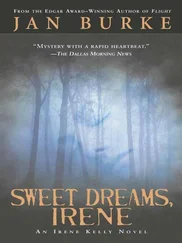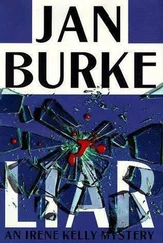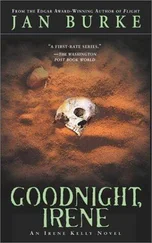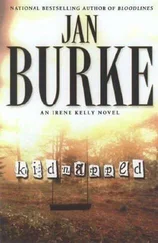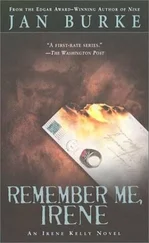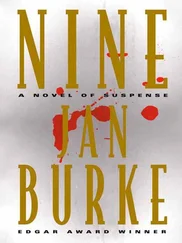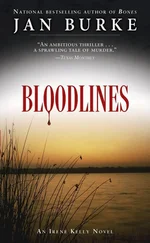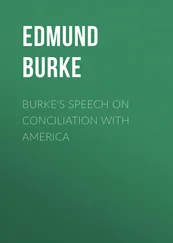I wondered if she would have the nerve to show up at the funeral. I wouldn’t know her if she did. When he made his confession, David never told me her name, and I never asked for it. As far as I was concerned, it was important not to know the name of the woman David had met at the St. George Hotel every Wednesday for fifteen weeks. For fifteen weeks, on the night I taught a class in-of all things-ethics, Ms. X had taught David that he could still lure a woman to bed. I wondered if they had laughed about that. He wasn’t laughing when it ended. “A temporary madness,” he had told me, weeping as he did. “Forgive me,” he pleaded.
To this day, I’m not able to be very precise about why I did forgive him. At the time I was outraged, hurt, angry, humiliated. The pain of betrayal remained; whatever trust was between us had taken a torpedo broadside. But the ship didn’t sink, it just listed.
Maybe the reason I stayed with him wasn’t really so complex. David and I had been together for twenty years; and in that twenty years I had come to love him more than anyone else on earth. He was a habit I couldn’t break. Fate broke it for me.
David had made his confession six months ago, and strove to be the ideal husband in the time since. Together we tried to renew our marriage, and somehow, we were making it. On the morning of the day he died, he told me that he was working on something that would really make me proud of him. I had no idea what it was. “I’m proud of you all the same, David,” I said to the haggard reflection in the mirror. Ten minutes later I was still sitting on the bathroom floor, sobbing.
I pulled myself together, hoping I wouldn’t shame myself at his funeral. As I put on a plain black dress that David had always liked, I held on to the anger I felt toward his killer. David had come to the college to pick me up that night. I was on my way to the car when I heard the shots. The college is in a part of town that has become rougher over the years, and I didn’t think much about hearing gunfire. It wasn’t an everyday occurrence, but it wasn’t that rare. When I saw the crumpled form on the steps that lead up from the parking lot, I didn’t know it was David until I was only a few feet from him. He was unconscious, and bleeding to death. Nothing, not even a ghost in my bedroom, will ever terrify me the way those moments did, when I held David as he died.
No one saw the actual shooting, but several witnesses saw a blue Chevy speeding away from the scene. No one knew anything else. No model, no license plate, no description of the driver, no mention of how many people were in the car. No motive, just someone who got their kicks by driving around firing guns at people. There was some speculation that David had been hit by gunfire aimed at someone else, since other bullets were found lodged in a nearby tree, a wall, another car. “Random violence” seemed to be theory of the newspapers.
I was one of the believers in the theory. No one would want to kill David Blackburn. The man had cheated on me, and I didn’t want to kill him. I didn’t know anyone with a stronger motive.
The funeral was well-attended, with or without David’s former lover. The priest didn’t know David, but did the best he could to say generically comforting words. My family tried to brace me up, and succeeded in large degree. David’s parents were long dead, but his sister sent a wreath; she had wanted to come to the funeral but couldn’t manage the airfare from Maine to California, and refused my offer to buy the ticket.
There were neighbors and old friends, and a large contingent from Emery amp; Walden. David was the Vice President of Human Resources for Emery amp; Walden, a local manufacturing firm that employed about twenty-five hundred people. Many of the employees had contact with him, and trusted him as someone who would treat them fairly, as someone who had concern for their well-being. He often acted as a buffer between them and Mr. Winslow Emery III, the self-involved young man who was now at the helm of the company.
Today Winslow Emery looked tired and worn. It was understandable-he had attended a lot of funerals lately. Five days earlier, an acid tank at Emery amp; Walden had ruptured, causing the deaths of three workers. OSHA was investigating. David had been troubled by the deaths, as he was by the suicide of the plant manager, who apparently blamed himself for not responding to worker complaints about the tank.
I thought about David championing that troubled soul. His name, if I recalled, was Devereaux. I watched Emery walk away from David’s grave with the gait of a man twice his age. A good-looking blonde walked next to him. She had introduced herself to me as Mr. Emery’s secretary, Louise. Emery didn’t seem to notice her.
I noticed her, as I did two other women, Lucy Osborne and Annette Mayes, who lingered longer than most of the others. Both were at least fifteen years younger than I, and gorgeous. Lucy was a brunette, Annette a redhead. I wondered if David had stayed with my type or looked for something different when he chose a lover. Something in the way Annette looked at me made me decide he had tried something different. Oddly, I didn’t feel the animosity I thought I would feel towards her. I really didn’t care. David had come back to me. Fifteen weeks was not twenty-one years.
I sat next to the open grave longer than my sister, Lisa, thought I should, but I refused to be steered away. My father told her to let me be and then gave me a hug and said they’d be waiting for me at the car, to take my time.
“I guess this is goodbye, David,” I said aloud, and was startled to feel a warm hand on my shoulder. I looked up into the eyes of the ghost.
This time, I was angry. This was my private moment with David, and I didn’t want living or dead intruding on it. At the time, the man seemed to be among the living. I couldn’t see through him and his hand was warm. “Can’t a person have a moment’s peace?” I said, trying to remove his hand, but only touching my own shoulder. That frightened me.
He shook his head sadly and removed his hand.
“I don’t believe in ghosts,” I said.
He shrugged.
“Are you David?” I asked, thinking maybe I was seeing him transformed somehow.
But the ghost shook his head.
“Could I please have a little time to say goodbye to my husband? Would that be too much to ask?”
He gave a little bow and vanished.
I was shaking. “David,” I said, when I had calmed down, “Why isn’t it you? If I’m going to go crazy and see ghosts, why isn’t it your ghost? Show up, David. Materialize, or whatever it is you do. I want you back.”
I waited. Nothing.
“Goodbye, David,” I said, giving up. “I’ll miss you. I don’t know what I’m going to do without you. Be very sad for a very long time, I suppose.”
I looked up and saw a man walking toward me. I knew this one was among the living. There was nothing extraordinary about Detective Russo’s appearance. He was a plain-faced man, neither handsome nor ugly. He was of medium height, had mouse-brown hair that was cut short. His eyes, his voice, and his face usually reflected very little of what he was thinking or feeling. If you talked to him for a while, there was no mistaking his intelligence, but he didn’t walk around with his IQ embroidered on his sleeve. An ocean of calm, he seemed to me. I could use it.
“Hello, Detective Russo,” I said as he approached.
“Hello, Dr. Blackburn,” he said quietly. “I’m sorry if I interrupted you. Just wanted to make sure you were all right. I’ll leave-”
“No,” I said, standing up. “Don’t worry about it. I need to walk to the car; I’m keeping everyone waiting.”
He surprised me by offering me his arm, but I took it and we walked in silence toward the limo. When we reached it, I invited him to join us at the house, but he politely declined.
Читать дальше
